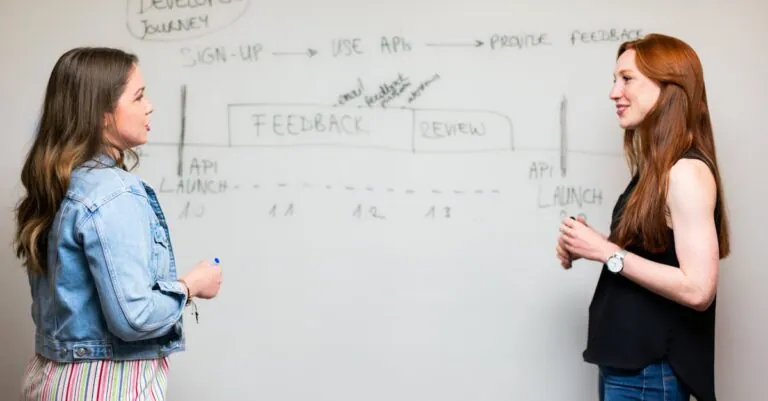In a world where multitasking is the norm and distractions lurk around every corner, keeping your brain sharp can feel like a full-time job. Enter brain training apps—the digital superheroes of cognitive enhancement. With a tap on your smartphone, you can embark on a quest to boost memory, sharpen focus, and outsmart your own forgetfulness. Who knew getting smarter could be so much fun?
Table of Contents
ToggleOverview of Brain Training Apps
Brain training apps enhance cognitive abilities through various interactive exercises. These applications target skills such as memory, attention, problem-solving, and processing speed. Users engage with games designed to challenge their brain, leading to measurable improvements in cognitive function.
Several popular brain training apps are available, each offering unique features. Lumosity provides tailored training programs based on individual performance. Elevate focuses on language and math skills, making it ideal for users looking to enhance specific areas. Peak, another option, includes over 40 games, targeting multiple cognitive skills.
Evidence supports the effectiveness of brain training apps. Research shows users experience increased memory retention and improved attention spans after regular use. A 2014 study published in the journal Nature found that engaging in brain training leads to significant cognitive gains over time. Additionally, many apps offer progress tracking, allowing users to visualize their improvements.
Community engagement also plays a vital role in the experience. Many apps feature leaderboards and challenges to foster competition among users. This social aspect can motivate individuals to stick with their training regimens and achieve better results.
Accessibility strengthens the appeal of brain training apps. They can be easily downloaded on smartphones and tablets, providing flexibility for users. The convenience of practicing cognitive skills anytime makes these apps an attractive option for busy individuals seeking to sharpen their minds.
Brain training apps serve as effective tools for cognitive enhancement, offering users a fun and engaging way to improve their mental abilities.
Types of Brain Training Apps
Brain training apps come in various forms, each focusing on different aspects of cognitive enhancement. These apps target specific brain functions, making it easy for users to find areas they wish to improve.
Cognitive Enhancement
Cognitive enhancement apps offer exercises designed to strengthen various mental skills. Users can engage in problem-solving tasks and puzzles that challenge their reasoning abilities. Many apps provide personalized training regimens, tailored to the user’s performance and progress. These features encourage consistent use and deepen cognitive development, ensuring users remain motivated to track their advancements.
Memory Improvement
Memory improvement apps focus on exercises that promote retention and recall of information. These apps employ games centered on memorization techniques, like word association and pattern recognition. Users benefit from challenges that gradually increase in difficulty, enhancing their ability to retain information. Research shows that regular interaction with these apps leads to measurable gains in memory capacity and recall speed.
Focus and Attention
Focus and attention apps target users seeking to enhance their concentration levels. Interactive exercises simulate real-world distractions, training users to maintain focus amidst interruptions. Gamified assessments frequently track attention spans, providing insights into areas for improvement. These methods engage users while reinforcing their ability to concentrate, ultimately leading to improved productivity in daily tasks.
Popular Brain Training Apps
Several brain training apps stand out for their unique features and effectiveness in enhancing cognitive skills. Users benefit from a variety of interactive exercises tailored to improve memory, focus, and problem-solving abilities.
App Features and Benefits
Lumosity offers personalized training programs that adapt to individual progress. Users appreciate its engaging games designed to strengthen attention and processing skills. Elevate emphasizes daily challenges that not only improve brain function but also enhance language and math skills. Peak combines cognitive training with motivational elements, such as progress tracking and community leaderboards. Additionally, these apps often feature user-friendly interfaces, allowing for easy navigation during training sessions.
User Reviews and Ratings
User reviews reflect high satisfaction levels across popular brain training apps. Many users highlight Lumosity’s stimulating exercises and variety as key attractions. Elevate receives praise for its extensive library of games that cater to numerous cognitive areas. Peak frequently garners positive feedback for its fun and challenging tasks. Ratings reveal that users enjoy the sense of achievement from tracking their progress and competing with others. Overall, the community engagement and personalized approaches contribute to the favorable impressions these apps leave on their audiences.
Effectiveness of Brain Training Apps
Brain training apps demonstrate considerable potential for enhancing cognitive skills. Evidence suggests they improve memory, attention, and problem-solving abilities for a variety of users.
Scientific Support
Numerous studies validate the efficacy of brain training apps. Research published in the journal Nature highlights that consistent engagement in cognitive training can boost memory retention significantly. Academics also note improvements in processing speed related to regular app usage. A 2016 meta-analysis corroborates these findings, showing trained skills transfer to real-world tasks, particularly in older adults. Extensive research continues to explore the long-term benefits of these tools. As researchers gain insights, a clearer picture of their impact on cognitive health emerges.
Anecdotal Evidence
Users frequently share positive experiences with brain training apps. Many report noticeable improvements in their mental agility and focus after regular practice. Personal testimonies often highlight increased productivity and enhanced problem-solving abilities in daily life. Individuals enjoy the gamified aspects that make learning enjoyable and challenge them to improve. Positive feedback on social media and app rating platforms reflects the engaging nature of these tools. Satisfaction levels remain high as users appreciate the convenience and accessibility offered by apps like Lumosity and Elevate. Overall, personal stories enhance the credibility of these cognitive training methods.
Future Trends in Brain Training Apps
Emerging trends in brain training apps focus on personalization and integration with artificial intelligence (AI). Developers increasingly implement AI algorithms that adapt exercises to individual user performance, ensuring more effective training sessions. Many apps provide real-time feedback, enabling users to track their progress in a precise manner.
Gamification continues to drive user engagement in these applications. Incorporating elements like rewards, challenges, and social interactions fosters a sense of community among users. Collaborative features encourage users to engage with friends, creating a competitive atmosphere that enhances motivation.
Augmented reality (AR) and virtual reality (VR) are transforming the landscape of brain training. These technologies offer immersive experiences, allowing users to participate in interactive environments that stimulate cognitive functions. Such engagement enhances the effectiveness of training by making it more enjoyable and realistic.
Cross-platform accessibility has become essential for brain training apps. Users increasingly favor apps that provide seamless transitions between devices, such as smartphones, tablets, and computers. This versatility ensures consistent training regimens anytime, anywhere.
Focus on mental health integration is also on the rise. Many developers recognize the connection between cognitive training and overall wellness. As mindfulness practices gain traction, some apps incorporate techniques that promote relaxation and mental clarity alongside traditional brain exercises.
The future for brain training apps looks promising, with a commitment to continuous improvement and user-focused features. Advanced technologies and innovative approaches will likely redefine the way users enhance their cognitive skills. Enhanced engagement, flexibility, and a focus on holistic mental health will shape the evolution of these tools in the coming years.
Conclusion
Brain training apps are revolutionizing how individuals enhance their cognitive abilities. With a variety of interactive exercises tailored to improve memory, focus, and problem-solving skills, these apps make mental sharpness accessible to everyone. Their gamified approach keeps users engaged while fostering a sense of community through leaderboards and challenges.
As technology continues to evolve, the integration of AI and immersive experiences promises to elevate the effectiveness of these tools even further. Emphasizing personalization and mental health, brain training apps are not just about sharpening minds but also about promoting overall well-being. By incorporating these innovative solutions into daily routines, users can unlock their full cognitive potential and enjoy the journey of lifelong learning.







